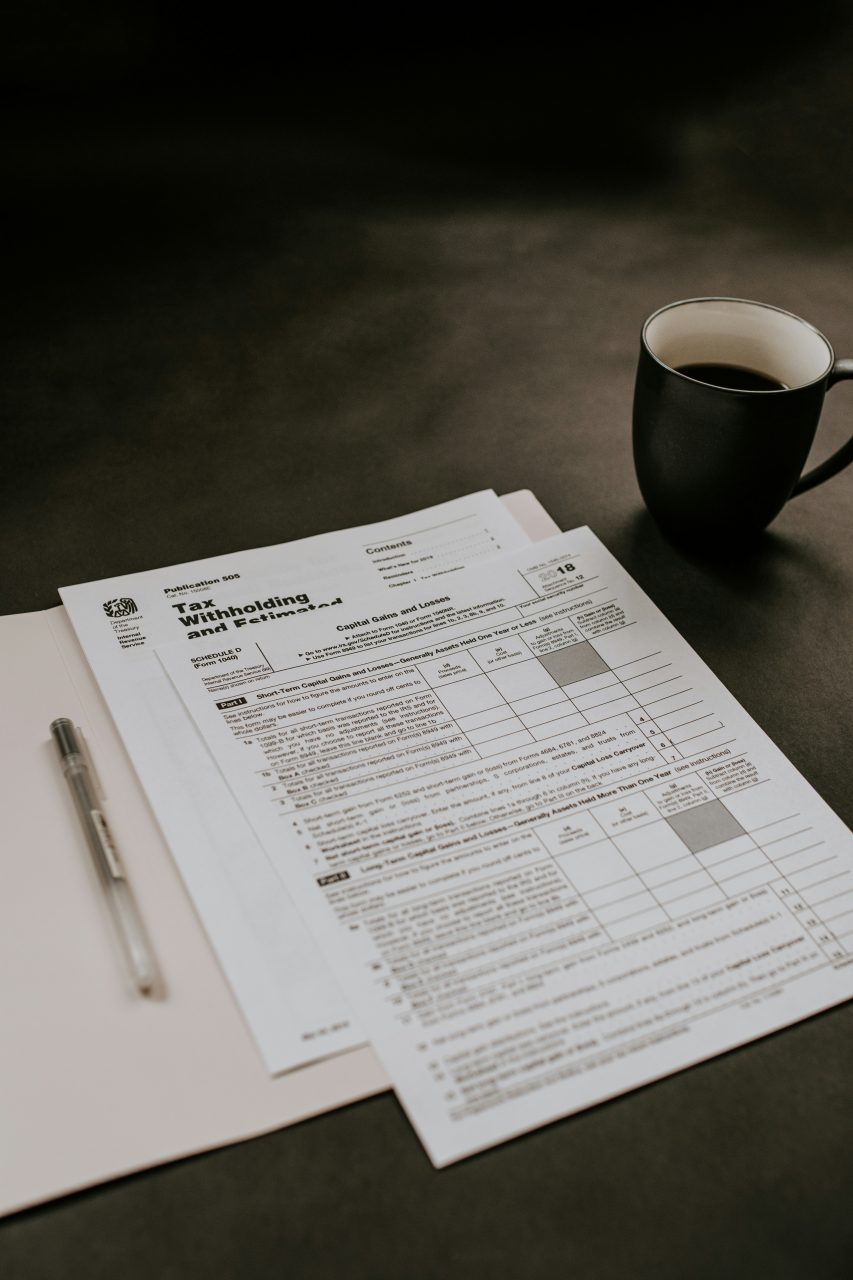Are you tired of seeing a big chunk of your paycheck go to taxes? Smart tax optimization can help you keep more of your hard-earned money. By understanding different tax strategies and staying informed, you can legally reduce your tax burden and boost your financial health. As such, we will be covering the following:
Key Takeaways
- Understanding tax deductions can help you save money on charitable contributions, business expenses, and retirement savings.
- Tax credits like the Earned Income Credit, Child Tax Credit, and Education Tax Credits can significantly reduce your tax bill.
- Proper tax planning strategies, including timing your income and deductions, investing in tax-efficient accounts, and tax loss harvesting, are essential.
- Investing in tax-efficient options like municipal bonds and retirement accounts can help you avoid high taxes on your gains.
- Small business owners can benefit by choosing the right business structure, utilizing business expense deductions, and maximizing retirement contributions.
Understanding Tax Deductions
A tax deduction reduces your taxable income and how much tax you owe. You can itemize your deductions or take a fixed amount with the standard deduction.
Maximizing Your Charitable Contributions
Charitable contributions made with payroll deductions, checks, cash, and donations of goods are all deductible. You need to itemize to claim a deduction. Many people choose not to itemize even though since 2017 tax reforms nearly doubled the standard deduction.
Utilizing Business Expenses
The IRS allows you to deduct various business expenses, whether you take the standard deduction or itemize. Some of the business deductions available include business-related vehicle mileage, shipping, advertising, website fees, percentage of home internet charges used for business, professional publication subscriptions, dues, memberships, travel, office supplies, and any expenses incurred to run your business.
Taking Advantage of Retirement Contributions
Contributions to retirement accounts like 401(k)s and IRAs can reduce your taxable income. These contributions are often tax-deferred, meaning you won’t pay taxes on them until you withdraw the money in retirement. This can be a powerful way to save for the future while lowering your current tax bill.
Tip: A tax deduction reduces your taxable income and how much tax you owe. You can itemize your deductions or take a fixed amount with the standard deduction.
Tax Credits Explained
Claiming the Earned Income Credit
The Earned Income Credit (EIC) is a valuable benefit for low to moderate-income workers. This credit can significantly reduce your tax bill or even result in a refund. To qualify, you must meet certain income limits and other criteria. The amount of the credit varies based on your income, filing status, and number of qualifying children.
Utilizing the Child Tax Credit
The Child Tax Credit is designed to help families with the costs of raising children. If you have eligible dependents, this credit can reduce your tax liability by up to $2,000 per child. For example, if you owe $4,000 in taxes and have two qualifying children, the Child Tax Credit can reduce your tax bill to zero.
Education Tax Credits
Education tax credits, such as the American Opportunity Credit and the Lifetime Learning Credit, can help offset the costs of higher education. These credits can be used for tuition, fees, and other qualified expenses. The American Opportunity Credit is available for the first four years of college, while the Lifetime Learning Credit can be used for undergraduate, graduate, and professional degree courses.
Taxfully’s tax benefits archives provide insights on tax savings, like-kind exchanges, S Corp advantages, and tax benefits for small business owners in the US.
Strategies for Tax Planning
Timing Your Income and Deductions
One effective strategy for smart tax optimization is to carefully time your income and deductions. By deferring income to the next year or accelerating deductions into the current year, you can potentially lower your taxable income. This is especially useful if you expect to be in a lower tax bracket in the future.
Investing in Tax-Efficient Accounts
Utilizing tax-efficient accounts like Roth IRAs, Traditional IRAs, and 401(k)s can significantly reduce your tax burden. Contributions to these accounts can either be tax-deductible or grow tax-free, providing substantial tax savings over time. Here’s a quick comparison:
| Account Type | Tax Benefit |
|---|---|
| Roth IRA | Tax-free growth |
| Traditional IRA | Tax-deductible contributions |
| 401(k) | Tax-deferred growth |
Utilizing Tax Loss Harvesting
Tax loss harvesting involves selling investments at a loss to offset gains in other areas. This can help reduce your overall tax liability. For example, if you have a stock that has lost value, selling it can offset the gains from a stock that has increased in value. This strategy is particularly useful at the end of the year when you are reviewing your portfolio.
Remember, tax planning is not a one-time activity but a year-round process. Regularly reviewing and adjusting your strategies can help you stay on top of your tax situation and make the most of your financial resources.
For more year-end tax strategies, consider consulting a tax professional who can provide personalized advice tailored to your specific needs.
Tax-Efficient Investments
Understanding Capital Gains Tax
Capital gains tax is what you pay on the profit from selling an investment. Holding investments for more than one year can qualify you for lower long-term capital gains tax rates. This means you pay less tax if you keep your investments longer.
Utilizing Municipal Bonds
Municipal bonds are a type of investment that can be very tax-friendly. The interest earned from these bonds is often exempt from federal income tax and sometimes even state and local taxes. This makes them a good choice for those looking to reduce their tax burden.
Investing in Retirement Accounts
Retirement accounts like IRAs and 401(k)s offer tax advantages that can help you save more money over time. Contributions to these accounts are often tax-deductible, and the investments grow tax-free until you withdraw the money in retirement.
Consider tax-efficient investments like municipal bonds and retirement accounts to keep more of your hard-earned money.
Tax Planning for Small Business Owners
Choosing the Right Business Structure
Selecting the appropriate business structure is crucial for minimizing your tax burden. Some structures, like LLCs and S corporations, offer fewer tax consequences for owners. Restructuring your entity might be beneficial as your business evolves.
Utilizing Deductions for Business Expenses
Small business owners can take advantage of various deductions to reduce taxable income. Common deductions include office supplies, travel expenses, and even a portion of your home if you have a home office. Keeping detailed records is essential for maximizing these deductions.
Maximizing Retirement Contributions
If you’re self-employed, you have access to retirement plans like a Solo 401(k) or SEP-IRA. These plans allow for significant contributions, which can greatly reduce your taxable income. Consider making the most of these options as part of your year-end tax strategies.
Proactive tax planning can help you keep more of your hard-earned money. Regularly review your tax strategies to ensure they align with your financial goals.
Conclusion
Smart tax optimization is essential for keeping more of your hard-earned money. By understanding deductions, credits, and strategic planning, you can significantly reduce your tax burden. Remember, the key is to be proactive, stay informed, and adjust your strategies as needed. Tax laws can change, so it’s important to keep up-to-date and seek professional advice when necessary. With the right approach, you can make the most of your finances and achieve your financial goals.
Frequently Asked Questions
What are tax deductions?
Tax deductions reduce the amount of income that is subject to tax. This can lower the overall tax you owe.
How can I maximize my charitable contributions?
You can maximize charitable contributions by keeping good records, donating appreciated assets, and making use of donor-advised funds.
What is the Earned Income Credit?
The Earned Income Credit is a benefit for working people with low to moderate income. It can reduce the amount of tax you owe and may give you a refund.
What are tax-efficient accounts?
Tax-efficient accounts are investment accounts that offer tax advantages, like IRAs and 401(k)s. They can help you save on taxes while growing your investments.
How do I choose the right business structure for tax purposes?
Choosing the right business structure depends on various factors like the size of your business, your income level, and how you want to handle taxes. Common structures include sole proprietorships, partnerships, and corporations.
What is tax loss harvesting?
Tax loss harvesting is a strategy where you sell investments at a loss to offset gains in other investments, which can reduce your taxable income.




